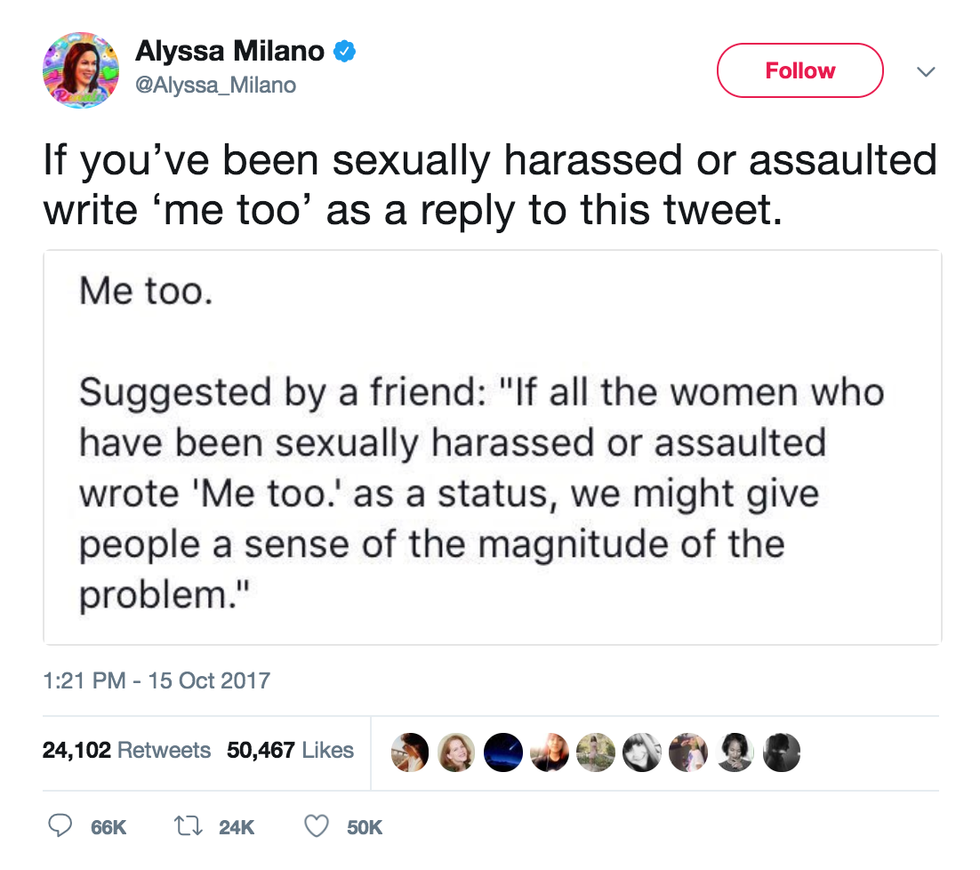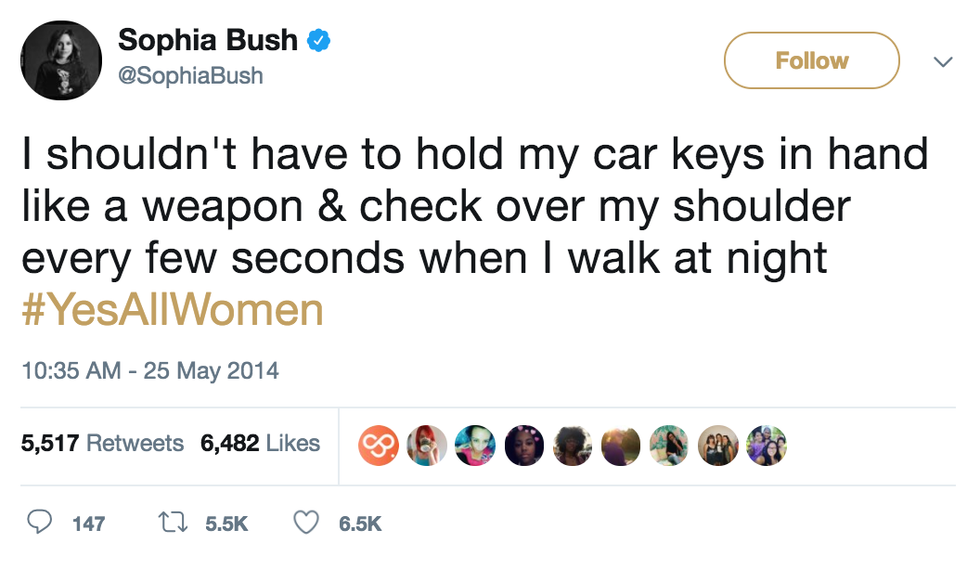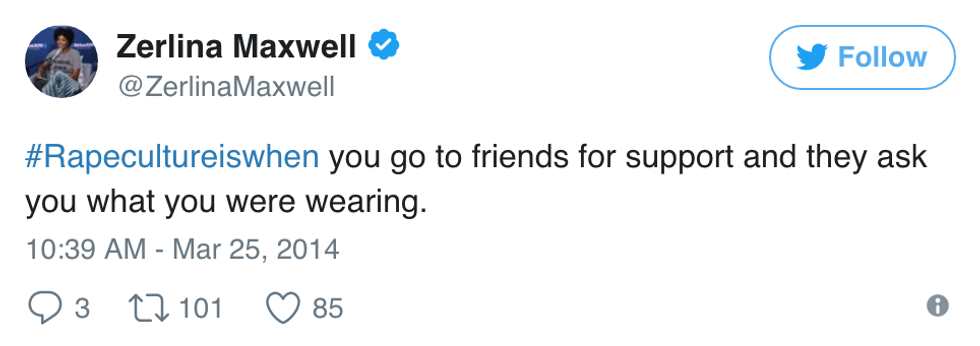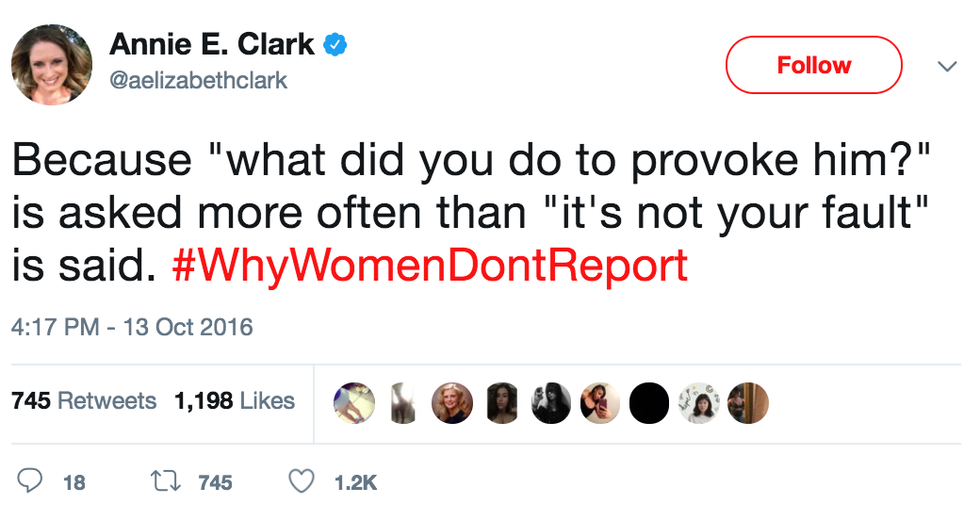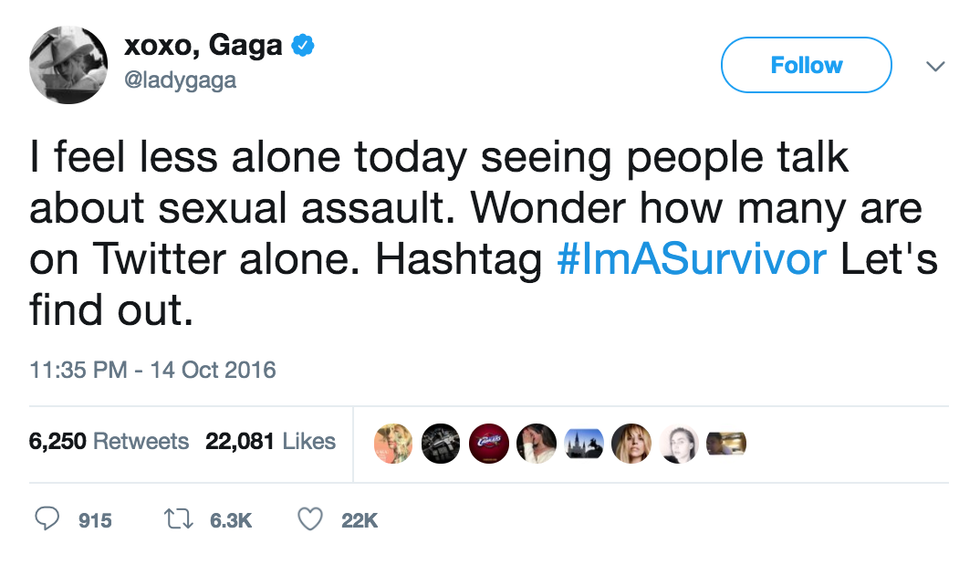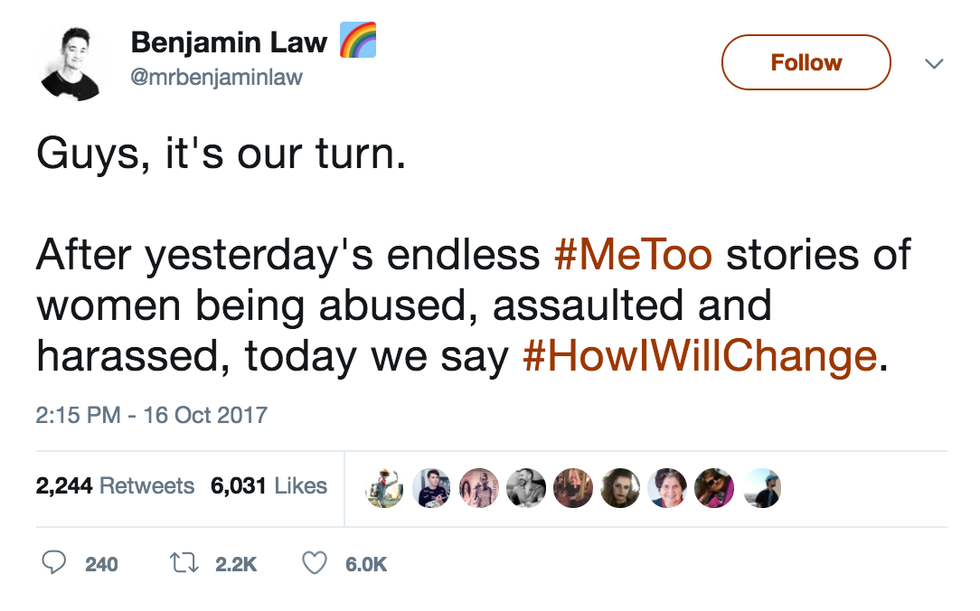Alright ladies, for those of you who haven't heard of the "me too" movement, here it is:
It all started on October 15th with a tweet posted by Alyssa Milano. Since then, it has gone viral. She created this hashtag in hopes to bring awareness to the magnitude of the problem. At this point, if people aren't aware of the magnitude, it is from pure ignorance, not lack of awareness.
I understand that women are participating for a sense of comfort or empowerment, but isn't the point to bring awareness? Hasn't that already been done multiple times...?
In 2014 there was #YesAllWomen and #RapeCultureIsWhen.
In 2016, there was #WhyWomenDontReport and #ImASurvivor.
Now, in 2017, there is #MeToo.
The "me too" campaign has already been done. Multiple times. We are all aware.
And yes, that is an important step in ending the rape culture that we live in. But why does it need to be done repeatedly and as a trend?
Maybe it gives women a sense of peace or comfort to know that so many other women have been through and survived the same event, but what good does that do if the point of this movement is to ultimately stop sexual harassment and assault?
We can't continually bring attention to this issue then let the "trendy hashtag" fade off and do nothing to end it.
Each time this movement comes around, it creates a false sense of unity for the victims. This hashtag doesn't bring us together, it just shows how many of us there really are. Since we've been living in this rape culture for so long, people are already aware of how widespread this issue is.
If they aren't, it means they don't want to be. And adding constant "me too" posts to their timelines won't make them want to learn about it any more than before.
Seeing women post "me too" as means to follow a trend on Facebook, Twitter, Instagram, or whatever the social media site maybe doesn't bring us all together. It just brings more awareness to how widespread it is. Again.
Some people say there's an issue with this movement because it pressures women to speak up. I both agree and, in a way, disagree. I agree because we all live a life in need of inclusion.
We all want to be a part of something bigger. So, as victims, it almost feels wrong not to post "me too" when you see post after post on every social media outlet. What most people don't understand is that this isn't inclusion, it's subconscious manipulation.
Now, on the other hand, I also somewhat disagree that it pressures us to speak out mainly because, despite the constant need for inclusion, some women feel like they have to rescend their voice and become even more closed-off about the incident just to stay within the boundaries of their comfort zone.
The "Me Too" movement, among others, also sets the responsibility of educating others on the issue and inherently fixing it on their own.
Those who are surprised at the number of women saying "me too" have had their senses completely turned off in regards to the rape culture we live in. People feel as though they need to share personal stories to educate others or constantly stay in the loop on others' traumatizing events just so it seems as though they made a difference.
This. Doesn't. Fix. Anything.
If anything women are more reluctant to come forward after being harassed in any type of way because they know all that will come of it will be similar Facebook posts, multiple campus emails, or a few hugs here and there.
This doesn't end rape culture.
Yes, it brings awareness to how many women have been victimized, but how many times do we really need to bring awareness before we make a difference?
Maybe we should bring awareness to the actual issue, not the victims.
We are aware we have been sexually harassed, but do the men realize what they have put us through?
I read a thread on Twitter written by a man who openly and publicly admitted his faults. He posted variety times in his life that he remembers harassing women.
Whether it be inappropriate hand placement on the first date or un-called for cat calls to women on the street, he admitted that he was in the wrong, he realizes his faults, and he is fixing them. Benjamin Law started a response hashtag, #HowIWillChange, that has also gone viral.
Amy Siskind has also brought attention to another hashtag response, #WithYou, that is also going viral.
I know what most of you all are thinking, and yes, the majority of my article has been disproving that a hashtag bringing awareness to will make any difference, but this hashtag is men taking a stand and saying they will change.
These hashtags aren't pressuring anyone or making women uncomfortable.
They aren't putting a responsibility on the victims. These hashtags, among others, are results of men stepping up and fixing the issue at hand.
That is trying to solve the issue. That is striving to make a difference.


